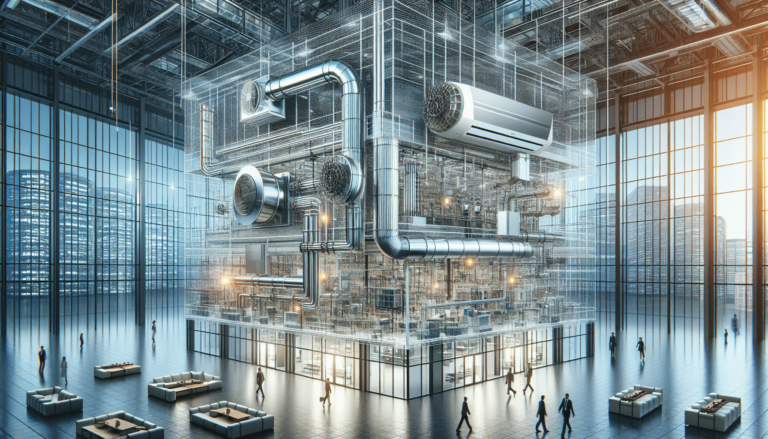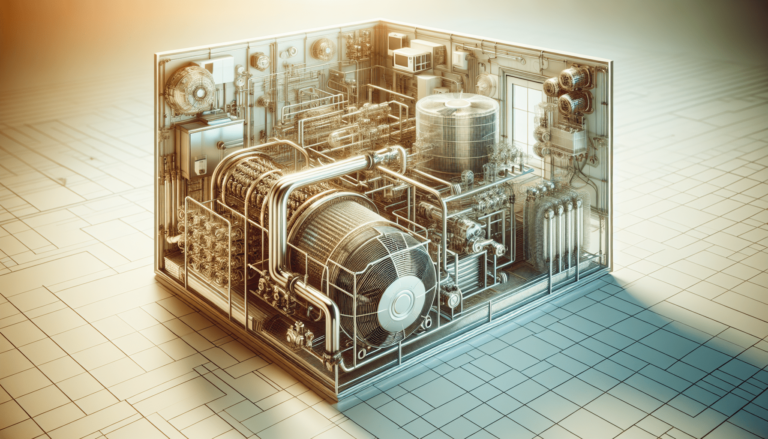

HVAC Services
Get Professional Repairs From The Area's Trusted HVAC Technicians. Ask About Our Services! We Offer Professional Heating & Cooling System Repairs And Guarantee Long-Lasting Results.
Got Question? Call us: (850) 678-2665Financing
Improving Energy Efficiency in HVAC Systems
Learn how to improve energy efficiency in HVAC systems through measures such as regular maintenance, upgrading to energy-efficient models, and optimizing airflow. Discover the benefits of smart thermostats, variable-speed compressors, energy recovery ventilation systems, and proper equipment sizing. Find out the importance of regular maintenance, cleaning air filters and coils, and balancing air distribution. Upgrade to energy-efficient equipment with Energy Star certification and consider SEER and EER ratings. Utilize zoning systems and enhance insulation to further optimize energy efficiency.
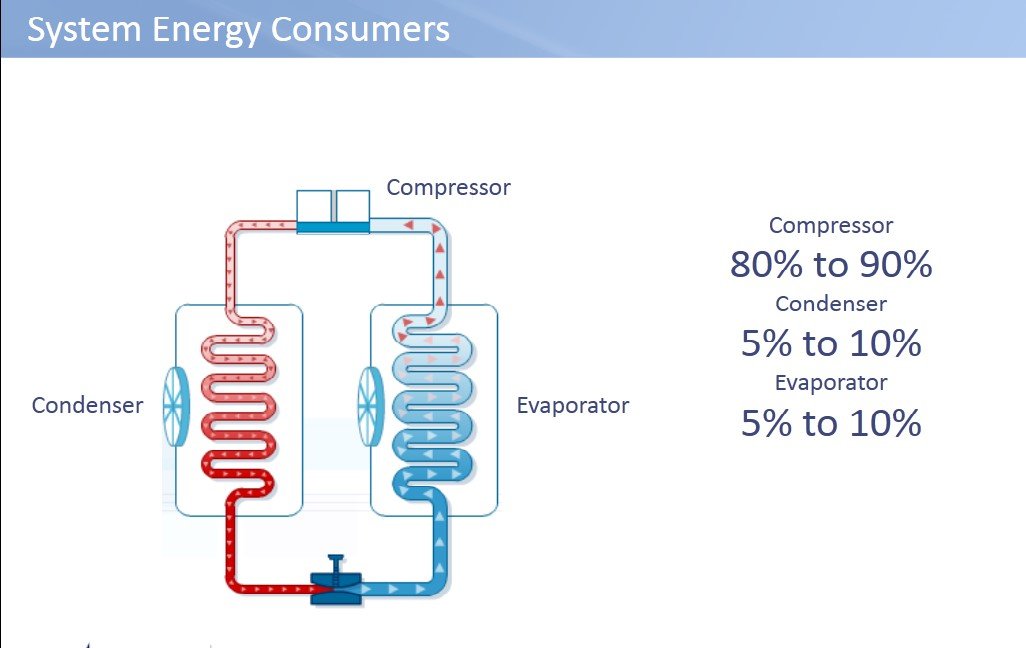
In this article, we will explore the topic of improving energy efficiency in HVAC systems. As we all know, HVAC systems play a crucial role in maintaining comfortable indoor environments, but they can also consume a significant amount of energy. By implementing certain measures and making smart choices, we can reduce energy waste and lower our carbon footprint. Whether it’s through regular maintenance, upgrading to more energy-efficient models, or adjusting our daily habits, there are several steps we can take to make our HVAC systems more environmentally friendly. Let’s dive into the details and discover how we can optimize our HVAC systems for greater energy efficiency.
Technological advancements in HVAC systems
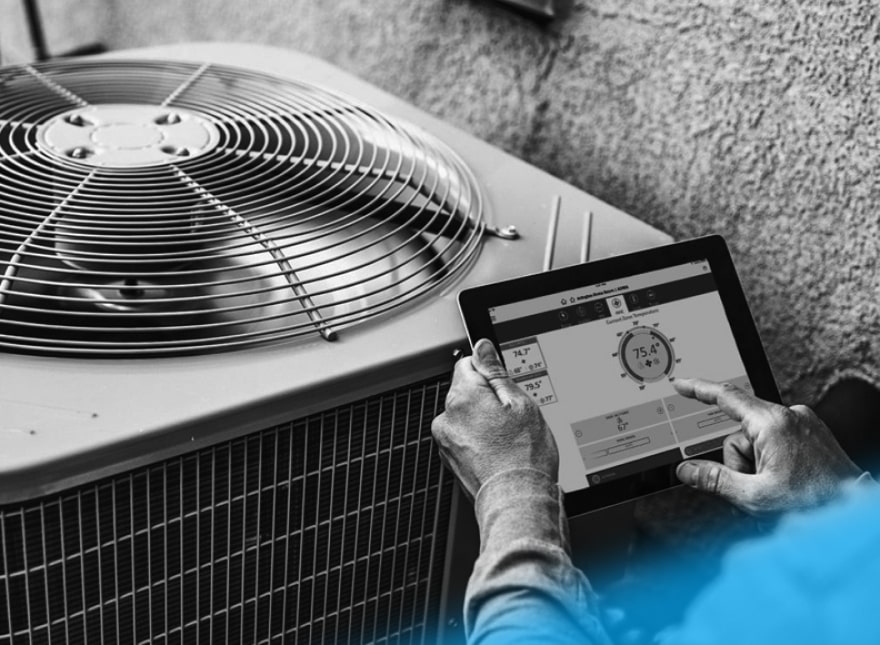
This image is property of www.softeq.com.
Smart thermostats
smart thermostats revolutionize the way we control the temperature in our homes or businesses. These advanced devices can be programmed to adjust the settings automatically based on your preferences and daily routines. They learn your habits and optimize energy usage accordingly, resulting in significant cost savings and increased comfort. With the ability to be controlled remotely through smartphones or voice assistants, smart thermostats provide convenience and flexibility. Tempacure Heating and Air Conditioning, the leader in HVAC services in Niceville FL, highly recommends incorporating smart thermostats into your HVAC system for enhanced efficiency.
Variable-speed compressors
Traditionally, HVAC systems have utilized single-speed compressors, which operate at full capacity regardless of the actual cooling or heating needs. Variable-speed compressors, on the other hand, can adjust their speed based on the current demand. By operating at lower speeds and modulating their output, these compressors consume less energy and provide more precise temperature control. This technology also reduces wear and tear on the equipment, prolonging its lifespan. With Tempacure Heating and Air Conditioning’s expertise in HVAC repair and maintenance, they recommend upgrading to variable-speed compressors to optimize your system’s performance and energy efficiency.
Energy recovery ventilation systems
Energy recovery ventilation (ERV) systems play a crucial role in improving indoor air quality while minimizing energy loss. These systems exchange heat and humidity between the incoming and outgoing air streams, ensuring a constant supply of fresh air without excessive energy consumption. In spaces where the outdoor air needs to be conditioned, ERV systems recover the energy from the exhaust air to pre-condition the incoming air. This reduces the workload on the HVAC system and leads to significant energy savings. Tempacure Heating and Air Conditioning emphasizes the significance of ERV systems in achieving energy efficiency and recommends their integration into HVAC systems.
Proper equipment sizing
Importance of proper sizing
Proper equipment sizing is essential for the optimal performance and efficiency of HVAC systems. Oversized units lead to frequent on-off cycles, causing increased energy consumption and premature wear and tear. Undersized units, on the other hand, struggle to meet the required cooling or heating demands, resulting in discomfort and inefficient operation. Hiring professionals such as Tempacure Heating and Air Conditioning who correctly calculate the load requirements of your space ensures that your HVAC equipment is appropriately sized, delivering efficient and reliable performance.
Manual J calculation method
The Manual J calculation method is a widely recognized technique used to determine the heating and cooling loads of a building accurately. It takes into account factors such as the climate, insulation, windows, and occupancy to calculate the proper capacity needed for HVAC equipment. By considering all these variables, the Manual J calculation method ensures that the HVAC system is appropriately sized, resulting in improved energy efficiency. Tempacure Heating and Air Conditioning follows this recommended method to determine the ideal equipment capacity for maximum efficiency.
Consideration of building occupancy and usage patterns
Building occupancy and usage patterns are crucial factors to consider when sizing HVAC equipment. The number of occupants, their activities, and the operating hours greatly impact the heating and cooling demands. For example, a building with high occupancy and constant usage may require a larger HVAC system, while a residential space with fewer occupants and intermittent usage can be adequately served by a smaller system. Tempacure Heating and Air Conditioning, with their expertise in HVAC service repair and maintenance, takes into account the specific needs of your space to ensure that your HVAC equipment is sized accurately for optimal efficiency.
Regular maintenance and cleaning
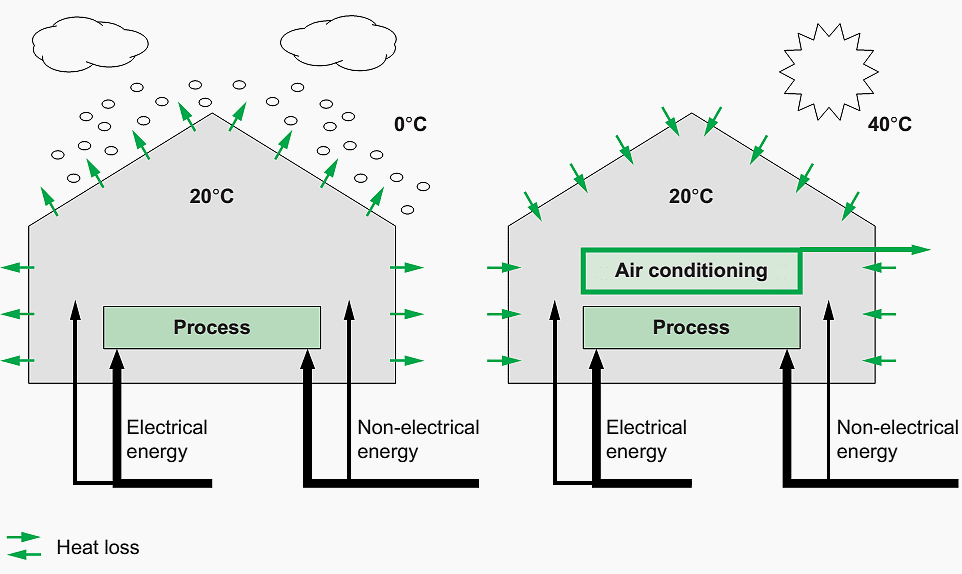
This image is property of electrical-engineering-portal.com.
Importance of maintenance
Regular maintenance is key to preserving the performance and efficiency of HVAC systems. Neglecting maintenance can lead to clogged filters, dirty coils, and general wear and tear. This not only decreases the system’s efficiency but also puts a strain on its components, potentially leading to costly repairs or even premature replacement. To avoid these issues, Tempacure Heating and Air Conditioning recommends regular maintenance checks, which include thorough inspections, cleaning, and necessary repairs. By investing in routine maintenance, you can ensure that your HVAC system operates at peak efficiency while minimizing the risk of breakdowns.
Cleaning air filters
Air filters play a crucial role in maintaining healthy indoor air quality and the efficiency of HVAC systems. Over time, filters accumulate dust, debris, and pollutants, restricting airflow and causing the system to work harder. Regularly cleaning or replacing air filters not only ensures smooth airflow but also prevents contaminants from circulating in the indoor environment, benefiting the health and comfort of occupants. Tempacure Heating and Air Conditioning advises cleaning or replacing filters according to the manufacturer’s recommendations to optimize energy efficiency and maintain clean air.
Inspecting and cleaning coils
Coils in HVAC systems are responsible for heat transfer, and their performance greatly affects energy efficiency. Over time, coils can accumulate dirt, dust, and debris, considerably reducing their heat transfer capability. Regular inspection and cleaning of coils help maintain efficient heat transfer, ensuring that the system doesn’t have to work harder to achieve the desired temperature. Tempacure Heating and Air Conditioning recommends professional inspection and cleaning of coils to keep your HVAC system operating at peak efficiency, ultimately reducing energy consumption and enhancing performance.
Optimizing airflow
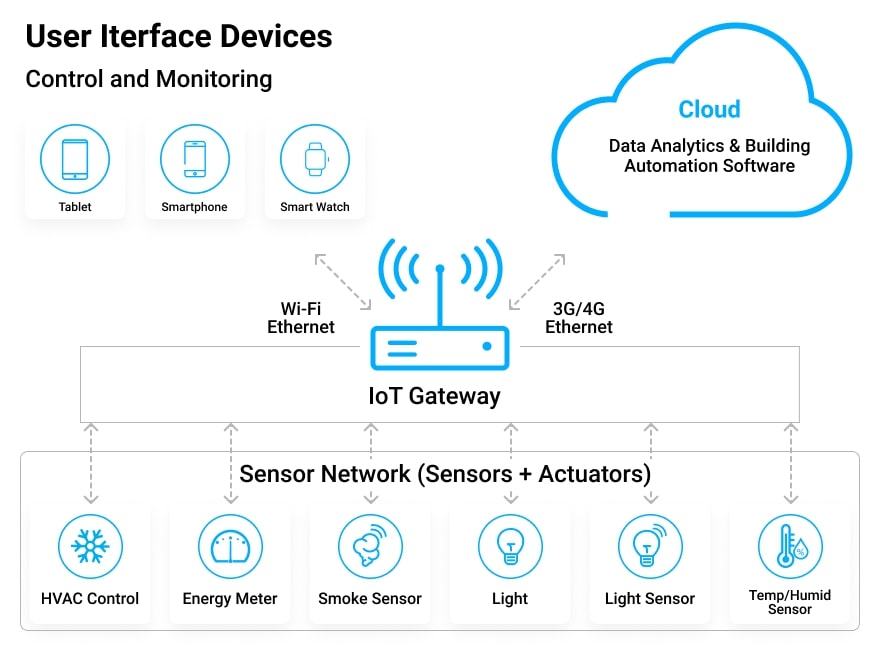
This image is property of www.softeq.com.
Balancing air distribution
Balancing air distribution ensures that conditioned air is evenly distributed throughout the space, maximizing comfort and energy efficiency. Properly balanced HVAC systems eliminate hot or cold spots, reducing the need for continuous adjustments to maintain desired temperatures. By adjusting dampers and registers, redistributing airflow, and ensuring an appropriate airflow rate, you can optimize the performance of your HVAC system. Tempacure Heating and Air Conditioning’s expert technicians can assist you in achieving proper air distribution, enhancing comfort and efficiency.
Checking and sealing ductwork
Leaky ductwork can result in significant energy loss, as conditioned air escapes before reaching its intended destination. Checking for leaks and sealing the ductwork addresses this issue, improving the efficiency of the HVAC system. Sealing ducts prevents air loss and minimizes the need for the system to compensate for the lost air, thereby reducing energy consumption. Tempacure Heating and Air Conditioning specializes in ductwork inspection and sealing services, allowing you to optimize the airflow in your HVAC system and reduce energy wastage.
Utilizing airflow sensors
Incorporating airflow sensors in HVAC systems enables real-time monitoring and adjustment of airflow rates. These sensors measure the actual airflow within the system and provide feedback that can be used to make necessary adjustments for optimal performance and energy efficiency. By continuously monitoring airflow and making appropriate changes, airflow sensors ensure efficient operation while minimizing energy consumption. Tempacure Heating and Air Conditioning recommends utilizing airflow sensors as part of your HVAC system to achieve optimal airflow and energy efficiency.
Upgrade to energy-efficient equipment
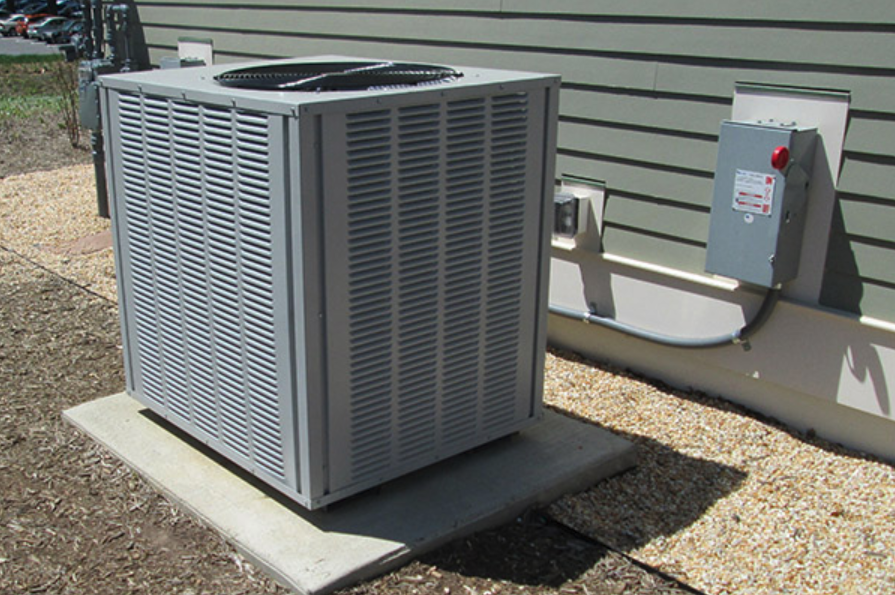
This image is property of aeroseal.com.
Energy Star certified products
Energy Star certification is a reliable indicator of energy efficiency and performance excellence. Products with the Energy Star label have undergone rigorous testing to meet specific efficiency standards set by the U.S. Environmental Protection Agency (EPA). Investing in Energy Star-certified HVAC equipment guarantees that you are purchasing products that operate efficiently, leading to lower energy consumption and reduced environmental impact. Tempacure Heating and Air Conditioning recommends upgrading to Energy Star-certified equipment to maximize energy savings and minimize carbon footprint.
SEER and EER ratings
Seasonal Energy Efficiency Ratio (SEER) and Energy Efficiency Ratio (EER) are metrics used to measure the energy efficiency of HVAC equipment. SEER indicates the cooling efficiency during a typical cooling season, while EER measures the cooling efficiency at a specific operating condition. Higher SEER and EER ratings reflect greater energy efficiency, resulting in lower energy costs. Tempacure Heating and Air Conditioning advises considering the SEER and EER ratings when selecting new HVAC equipment to ensure maximum energy efficiency and long-term cost savings.
Consideration of life-cycle costs
When upgrading HVAC equipment, it’s essential to consider not only the initial cost but also the life-cycle costs. Life-cycle costs include factors such as maintenance, repairs, and energy consumption over the expected lifespan of the equipment. Although energy-efficient equipment may have a higher upfront cost, they often result in significant long-term savings due to reduced energy consumption and lower maintenance expenses. Tempacure Heating and Air Conditioning encourages looking beyond the initial cost and prioritizing energy efficiency to achieve the best return on investment and overall cost savings.
Utilizing zoning systems
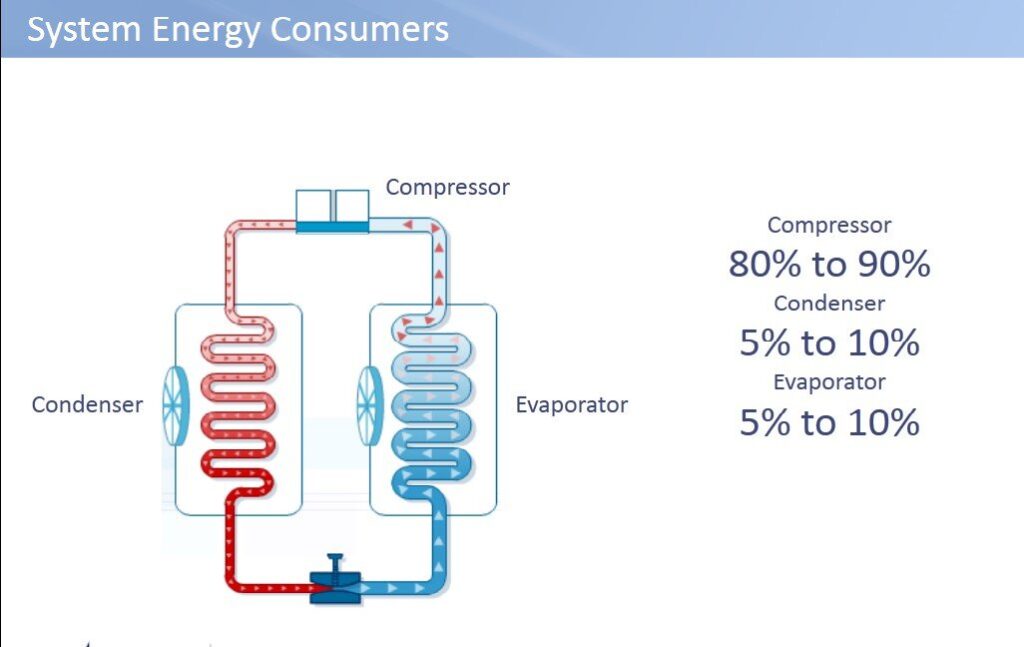
This image is property of www.star-ref.co.uk.
Benefits of zoning
Zoning systems divide the space into separate zones, each with its thermostat, allowing for independent temperature control. This allows for more precise temperature management and eliminates the need to condition areas that are not in use. By individually controlling different zones based on occupancy and usage patterns, zoning systems optimize energy usage and enhance comfort. Tempacure Heating and Air Conditioning suggests incorporating zoning systems into your HVAC design for more personalized control and improved energy efficiency.
Installing multiple thermostats
To implement zoning effectively, installing multiple thermostats in different zones is essential. Each thermostat can be programmed to maintain desired temperatures independently, ensuring that energy is not wasted in unoccupied or less frequently used areas. By accurately controlling each zone’s temperature, the HVAC system can avoid unnecessary energy consumption, resulting in substantial energy savings. Tempacure Heating and Air Conditioning offers expert installation services for multiple thermostats, enabling efficient zoning and optimized energy efficiency.
Controlling different zones separately
Once multiple thermostats are installed in different zones, controlling each zone separately becomes possible. This level of control allows for precise temperature adjustments according to the specific requirements of each zone. Zoning systems enable heating or cooling only in the areas that need it, preventing unnecessary energy consumption. By controlling different zones separately, you can customize comfort while minimizing energy usage. Tempacure Heating and Air Conditioning emphasizes the importance of this energy-saving feature and encourages individuals to take advantage of the advanced control options provided by zoning systems.
Enhancing insulation
Importance of insulation
Insulation is a crucial component in maintaining energy efficiency in HVAC systems. Proper insulation minimizes heat transfer, keeping the conditioned air inside and the outdoor air outside. Inadequate insulation leads to energy loss, requiring the HVAC system to work harder to compensate for the temperature differences. By enhancing insulation, you can reduce energy consumption, improve comfort, and minimize the strain on your HVAC equipment. Tempacure Heating and Air Conditioning recommends assessing and upgrading insulation as necessary to optimize energy efficiency and overall system performance.
Sealing air leaks
Air leaks in buildings contribute to energy loss and compromise the efficiency of HVAC systems. Small cracks, gaps, and openings in walls, windows, and doors allow conditioned air to escape, while unwanted outdoor air infiltrates the space. Sealing these air leaks prevents energy loss and helps maintain consistent indoor temperatures. By identifying and sealing air leaks, you can ensure efficient operation of your HVAC system and reduce energy waste. Tempacure Heating and Air Conditioning offers air leak detection and sealing services to improve the energy efficiency of your space.
Adding insulation to walls and ducts
Adding insulation to walls and ducts can significantly enhance energy efficiency. Insulating walls prevents heat transfer between the indoor and outdoor environments, reducing the need for continuous temperature adjustments. Similarly, insulating ductwork prevents energy loss as conditioned air travels from the HVAC system to the various zones. Proper insulation ensures that the desired temperature is maintained efficiently, reducing energy consumption and improving overall comfort. Tempacure Heating and Air Conditioning recommends consulting professionals to determine the appropriate insulation requirements for maximum energy efficiency.
Integrating renewable energy sources
Solar power for heating and cooling
Relying on renewable energy sources for HVAC needs is an effective way to reduce dependence on conventional energy sources and lower carbon emissions. Solar power can be harnessed to provide heating and cooling by using solar thermal collectors and solar-powered absorption chillers. Solar thermal collectors capture the sun’s energy to heat water or air, while absorption chillers use solar energy to provide cooling. By integrating solar power into HVAC systems, you can significantly reduce energy consumption and contribute to a greener future. Tempacure Heating and Air Conditioning supports the adoption of solar power in HVAC systems to achieve sustainable and energy-efficient operation.
Geothermal heat pumps
Geothermal heat pumps leverage the steady temperature below the ground’s surface to provide heating and cooling. These systems utilize the earth’s stable temperature as a heat source in winter and a heat sink in summer, reducing the energy required for conditioning the air. Geothermal heat pumps are highly efficient and environmentally friendly, as they don’t rely on fossil fuels for operation. Although the upfront cost of installation may be higher, the long-term energy savings and minimal environmental impact make geothermal heat pumps a worthwhile investment. Tempacure Heating and Air Conditioning specializes in geothermal heat pump installation and can help you harness the benefits of this energy-efficient technology.
Integration with grid-tied systems
Integrating HVAC systems with grid-tied systems allows for further energy efficiency and sustainability. Grid-tied systems, such as solar photovoltaic panels, generate electricity that can be used to power HVAC equipment. Excess electricity produced by these systems can be fed back into the grid, offsetting energy consumption during periods of high demand. By integrating HVAC systems with grid-tied systems, you can optimize the use of renewable energy and reduce reliance on conventional power sources. Tempacure Heating and Air Conditioning recommends exploring grid-tied system options to maximize energy efficiency and minimize the environmental impact of your HVAC system.
Building design considerations
Passive solar design
Passive solar design involves strategically utilizing the sun’s energy to heat and cool buildings naturally. By considering factors such as building orientation, window placement, and shading, passive solar design maximizes energy efficiency and reduces the reliance on mechanical heating and cooling systems. South-facing windows, thermal mass, and effective insulation are some elements used in passive solar design to harness the sun’s energy effectively. Tempacure Heating and Air Conditioning supports the integration of passive solar design principles in building construction or renovation to achieve sustainable energy efficiency.
Strategic shading and window placement
Proper shading and window placement are crucial aspects of building design that contribute to energy efficiency. Strategic shading, such as the use of awnings, overhangs, or external shading devices, reduces direct sunlight penetration during warmer months, minimizing the cooling load on the HVAC system. Additionally, placing windows strategically to maximize natural light while minimizing excessive heat gain or loss can significantly improve energy efficiency. Tempacure Heating and Air Conditioning recommends consulting professionals who specialize in energy-efficient building design to optimize shading and window placement for enhanced comfort and reduced energy consumption.
Heat recovery systems
Heat recovery systems capture and reuse energy that would otherwise be wasted during the ventilation process. These systems transfer heat from the outgoing air to the incoming fresh air, reducing the energy required for conditioning the air. By recovering heat, HVAC systems can use energy more efficiently and achieve significant energy savings. Heat recovery systems are particularly beneficial in spaces that require continuous ventilation, such as commercial buildings or high-occupancy areas. Tempacure Heating and Air Conditioning encourages the integration of heat recovery systems to optimize energy efficiency and improve indoor air quality.
Education and training for HVAC professionals
Providing training on energy-efficient practices
Continuous education and training for HVAC professionals are essential to keep up with the latest energy-efficient practices and technologies. By staying updated on industry trends, professionals can provide accurate recommendations and solutions to maximize energy efficiency for clients. Tempacure Heating and Air Conditioning invests in ongoing training for their technicians, ensuring that they are equipped with the knowledge and expertise to offer the most energy-efficient solutions to their customers.
Stay updated on industry trends
The HVAC industry is constantly evolving, with new technologies and advancements emerging regularly. To provide the best energy-efficient solutions, HVAC professionals must stay updated on industry trends and be aware of the latest equipment, practices, and regulations. By staying informed, professionals can offer the most effective and efficient solutions to clients, maximizing energy savings and promoting sustainability. Tempacure Heating and Air Conditioning emphasizes the importance of staying updated on industry trends to provide the highest level of service and support to their customers.
Educating customers on energy efficiency benefits
Education is a crucial aspect of promoting energy efficiency in HVAC systems. HVAC professionals can play a vital role in educating customers about the benefits of energy-efficient practices and equipment. By explaining the impact of energy efficiency on cost savings, comfort, and the environment, professionals can empower customers to make informed decisions. Tempacure Heating and Air Conditioning prioritizes customer education and ensures that their clients fully understand the energy efficiency benefits of the recommended solutions, enabling them to make the best choices for their HVAC systems.
In conclusion, improving energy efficiency in HVAC systems is crucial for reducing energy consumption, lowering costs, and minimizing environmental impact. Technological advancements, such as smart thermostats and variable-speed compressors, enhance the efficiency and control of HVAC systems. Proper equipment sizing, regular maintenance, and optimizing airflow contribute to improved efficiency and performance. Upgrading to energy-efficient equipment, utilizing zoning systems, enhancing insulation, integrating renewable energy sources, considering building design, and promoting education and training for HVAC professionals are all key strategies for achieving energy efficiency in HVAC systems. With the expertise of Tempacure Heating and Air Conditioning, the leader in HVAC services in Niceville FL, you can implement these strategies and experience the benefits of a highly efficient and sustainable HVAC system. Contact Tempacure HVAC at (850) 678-2665 or visit their website at tempacurehvac.com to learn more about their services and begin your journey towards energy efficiency in HVAC systems.



